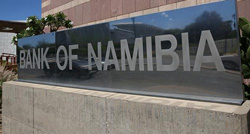
Global Fraud Survey results revealed

Mirna Koekemoer and Hans Hashagen at the launch of the Ernst & Young Global Fraud Survey
Whilst 80% of the Namibian respondents are of the opinion that people are penalised for transgression, the drive towards training and awareness is not as strong as in other African countries. “Without adequate training of employees, the ability of companies to combat corruption and related issues and to robustly investigate them, is diminished,” Hashagen notes.
15% of senior executives polled at leading companies around the world are willing to make cash payments to win or retain business, up from 9% in 2010.
More than 1,700 executives across 43 countries, including CFOs and heads of legal, compliance and internal audit, were surveyed for their views on fraud, bribery and corruption. Face-to-face interviews were held with senior executives of blue-chip companies. to discuss these findings.
The increase in the number of senior executives willing to make cash payments unethically underscores one of the survey’s key conclusions: the pressure to meet revenue targets is undermining executives’ commitment to compliance with policies and the law. Over a third of the global respondents believe corruption is widespread in their country, and the situation is significantly worse in rapid-growth markets like Brazil (84%), Nigeria (72%), Turkey (52%) and Africa (64%).
The survey clearly shows that African respondents are committed to combating corruption, with the processes in place to monitor anti-bribery compliance broadly on a par with (or even higher than) those in the rest of the world. Africans also show a keen appetite for increased supervision by regulators (72% in Africa as compared with 69% globally) and strong support for “bounties” for whistle-blowers along the lines proposed by the Dodd-Frank Act. Seventy nine percent of African respondents would support such a scheme, as compared with 52% globally.











































